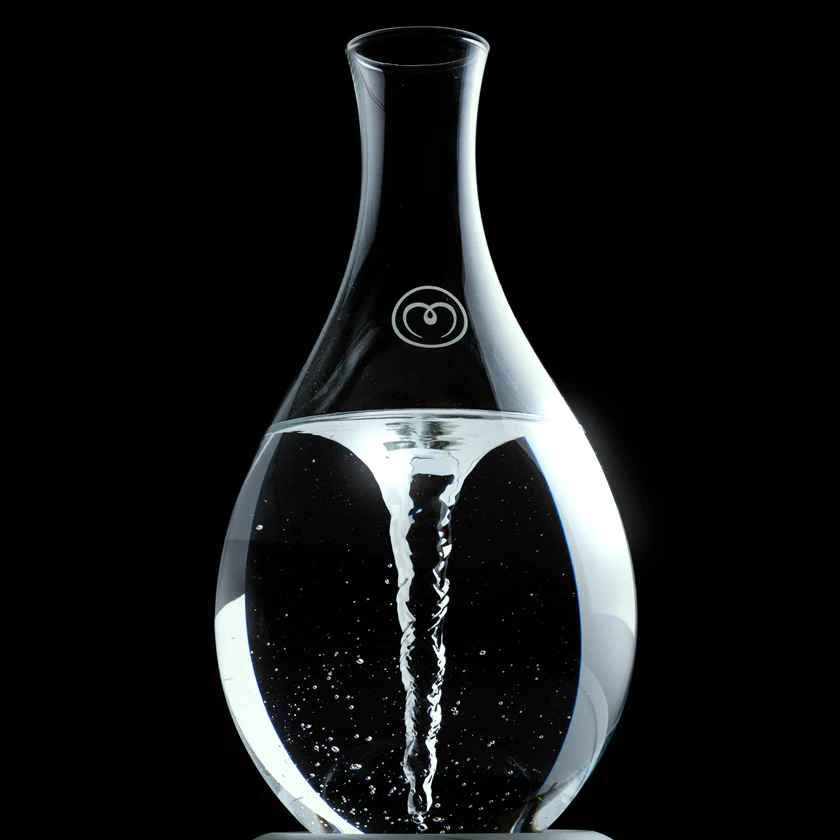Hydrate Your Heart: 3 Effects of Dehydration on Cardiac Health
Published October 6, 2024

Every organ in our body plays a crucial role, but the heart—ever-working, ever-pumping—stands out as particularly vital. It's common knowledge that regular exercise and a balanced diet contribute significantly to heart health, but one often overlooked factor is hydration. In fact, adequate water intake is crucial for heart function, as it helps maintain blood volume and regulate blood pressure.
Understanding the connection between hydration and heart health empowers us to take better care of our cardiovascular system. By knowing the dehydration side effects, we can understand why it's important to stay hydrated. So let's explore the effects of dehydration on cardiac health, exploring key questions such as "can dehydration cause high blood pressure?" and "why does dehydration increase heart rate?"
The Troubling Consequences of Dehydration
When we are dehydrated, our blood volume decreases. This reduction forces our heart to work harder, leading to an increase in sodium levels and causing the circulation of blood to become more difficult. Consequently, heart muscles have to pump more vigorously to maintain blood pressure.
This can lead to significant strain on the heart, particularly when the amount of blood circulating through the body decreases due to dehydration. Furthermore, dehydration can be caused by various factors, including fever, overuse of diuretics, strenuous exercise, vomiting, or severe diarrhea.
NOTE: Feeling thirsty is a late sign of dehydration. Try to drink water regularly, even when you don't feel thirsty.
People with heart conditions, diabetes, kidney problems, or cystic fibrosis may be at higher risk due to their increased water loss through frequent urination or sweating.
Moreover, during winter, our bodies may not register the need for increased fluid intake in the same way they do during summer. Despite this, it's crucial to remember that our bodies need adequate hydration throughout the year.
» Here's how to ensure you're drinking enough water even when it's hard
Striking a Balance: Hydration and Heart Health
Finding the right balance in water intake is key. You might ask, "How much is enough?" Well, it varies for everyone. The recommended daily water intake is 11-12 glasses for women and 15-16 liters for men for adequate hydration.
Too much water intake can lead to a condition known as hyponatremia—the dilution of sodium in the blood. This imbalance can result in inefficient heartbeats and create a range of medical issues, particularly for those with existing heart conditions.
Hydration Tip:
If you're unsure about your water needs, consider the sources of fluid in your daily routine. Interestingly, 80% of your hydration needs are met by beverages and water, while the remaining 20% is sourced from foods, like soups and vegetables.
» Learn more about water quality in the US
The Unseen Risks of Dehydration
Understanding the symptoms of dehydration is vital in preventing its negative effects on our cardiac health. When the body is deprived of sufficient water, it can exhibit a range of symptoms from mild to severe, including the following:
1. High Blood Pressure
The relationship between high blood pressure and dehydration is complex. When dehydrated, our bodies produce a hormone called vasopressin, which is released when blood volume decreases or sodium levels rise.
Vasopressin is a hormone that causes the kidneys to retain water, thereby leading to vessel constriction and elevated blood pressure. A blood pressure reading above 140/90 mm Hg is considered high and is common in chronically dehydrated people.
2. Heart Palpitations
Can dehydration cause a high heart rate?
Yes, dehydration can indeed increase heart rate. This happens as dehydration causes a reduction in circulating blood volume. To compensate for this, the heart beats faster than normal, often leading to uncomfortable and uncontrolled heartbeats, also known as heart palpitations.
This can even lead to dehydration chest pain. Hence, it's crucial to replenish body fluids and electrolytes to prevent further complications.
3. Low Blood Pressure
Dehydration can also lead to low blood pressure, with readings lower than 90/60 mm Hg considered low.
With less fluid in the body, the blood becomes thicker and more challenging to circulate, causing the heart to pump harder. This stress can lead to complications such as dizziness and fainting. Therefore, understanding dehydration and low blood pressure and how to manage it is essential for maintaining heart health.
» Learn how you can help your kids stay hydrated
Quality and Quantity of Hydration
Beyond the amount of water we drink, the quality of our water can also impact our health. Different sources of water come with varying mineral contents, potential contaminants, and structural properties.
One particular type of water that stands out is structured water. This is water in a state similar to that found in nature, such as in pure glaciers or clear-flowing rivers. This state allows for more efficient hydration at a cellular level, potentially offering significant health benefits.
There are various ways to improve the quality of your hydration sources. Simple measures such as using water filters can help remove potential contaminants.
For people interested in exploring the benefits of structured water, Mayu Swirl can provide a convenient at-home solution. This carafe aerates the water, mimicking the natural movement of water in nature. That process helps structure the water, making it closer to natural water sources. Improved taste and increased pH levels take it one step above plain tap water.
The Heart of the Matter
Hydration is more than just quenching thirst—it's key to keeping our cardiovascular system healthy. Drinking the right amount of clean water each day helps our heart do its job, but it's not only about quantity. The quality of water we consume also matters. So, let's be mindful of our hydration habits. Stay hydrated and stay healthy!


















































